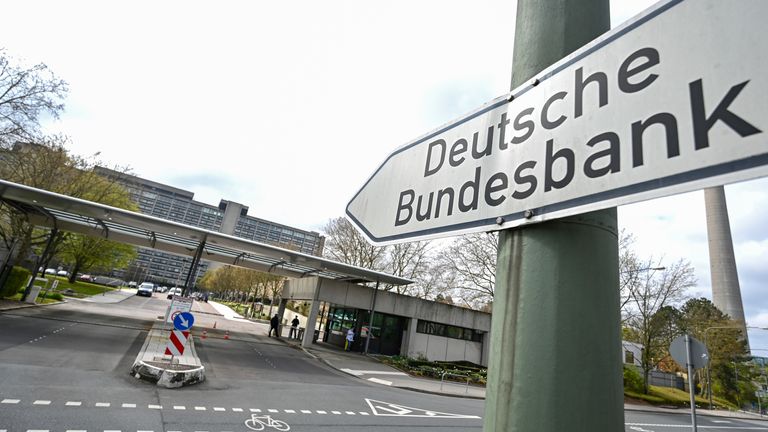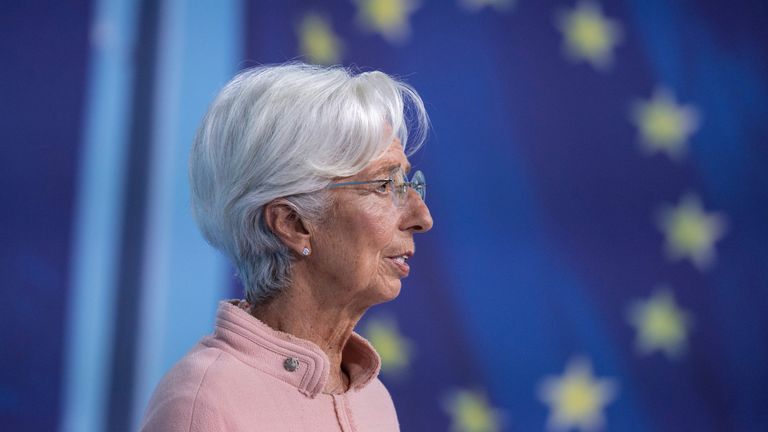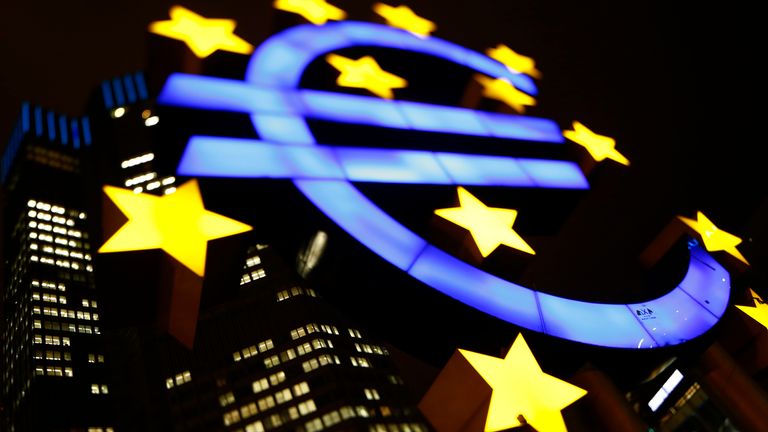Weidmann exits after dogged campaign against ECB’s approach to ‘addictive’ cheap money
One of the world’s most important central bankers is stepping down.
Jens Weidmann announced this morning that he was resigning as president of the Bundesbank, Germany’s central bank, after more than a decade in the job.
It is a move that could have significant implications.
Since taking the role, in May 2011, Mr Weidmann has fought a dogged and, at times, lonely campaign against what he perceived to be too loose an approach to monetary policy by the European Central Bank (ECB).
He once described cheap money as “addictive…like a drug”.
In doing so, Mr Weidmann was undoubtedly articulating the concerns of millions of Germans, who bitterly resented the vast asset purchase scheme (“quantitative easing” in the jargon) and negative interest rates introduced by the ECB under its former President, Mario Draghi.
More recently, after Mr Draghi was succeeded at the ECB by Christine Lagarde, Mr Weidmann railed against the latter’s insistence on incorporating the threat posed by climate change into both its economic forecasts and its stress tests.
Mr Weidmann argued that fighting climate change should be a matter for governments and not the ECB.
So his departure, because the Bundesbank president also represents Germany on the ECB’s governing council, will remove a major thorn in Ms Lagarde’s side.
The timing is also crucial.
Inflation is taking off in all parts of the world, the eurozone among them, so the debate about whether to tighten monetary policy is becoming less clear-cut.
The departure of Mr Weidmann, who in July voted against proposals that the ECB should keep interest rates at current levels until inflation stabilises at 2%, makes it more likely that Ms Lagarde will be able to continue with ultra-loose monetary policy.
Announcing his departure today, the 53-year-old insisted he had made the decision for personal reasons.
But a letter written to staff at the Bundesbank, released today, nonetheless hinted at his frustrations with the ECB.
He wrote: “Monetary policy has played a significant, stabilising role throughout this period [including the financial crisis, the eurozone sovereign debt crisis and the pandemic].
“However, the numerous emergency monetary policy measures were also associated with considerable side effects and in the ongoing crisis mode, the coordinate system of monetary policy was shifted.”
He went on: “It will be crucial…not to lose sight of prospective inflationary dangers either.
“And crisis measures, with their extraordinary flexibility, are only proportionate in the emergency situation for which they were created.
“A stability-oriented monetary policy will only be possible in the long run if the framework of the monetary union ensures the unity of action and liability, monetary policy respects its narrow mandate and does not get caught in the wake of fiscal policy or the financial markets.
“This remains my firm personal conviction, as does the high importance of the independence of monetary policy.”
In many ways, Mr Weidmann has suffered from sticking to his convictions.
His ferocious opposition to quantitative easing, based on his view that it would reduce pressure on governments like Greece and Italy to adopt austerity measures to bring down their budget deficits, made him enemies across southern Europe and guaranteed he would not succeed Mr Draghi.
The departure of Mr Weidmann, who was appointed by Germany’s outgoing chancellor Angela Merkel, also creates a headache for Germany’s incoming government even before it has taken office.
The expectation is that Mr Weidmann’s successor will be someone more amenable towards the ECB’s ultra-loose monetary policy.
As Joerg Kraemer, chief economist at the German lender Commerzbank, put it today: “Weidmann’s statement once again makes clear the already well-known fact that his positions are not widely reflected in the majority opinion of the ECB council.
“That Weidmann usually did not prevail with his positions could have played a role in his resignation.
“A new German government is unlikely to again appoint a Bundesbank president who stands at odds with the majority opinion of the ECB council.
“In this respect, Weidmann’s successor is likely to be less hawkish.
“This surely does not make it more likely that the ECB will exit its very expansive monetary policy in the foreseeable future, even as the inflationary risks have significantly risen recently.”
Yet that prospect will alarm many people in a country whose long-held anxiety around inflation goes back nearly a century – and ensure that the appointment, the first big one to be made by the new German government, will be closely watched.
Friedrich Heinemann, head of corporate taxation at the influential economic research institute ZEW, said: “The resignation of Jens Weidmann is a bitter loss for the ECB governing council.
“Weidmann is one of few on the council that caution, that continuously warn, against overstraining monetary policy and of too great a proximity to fiscal policy.
“The year 2022 could bring the decisive test of whether the ECB will take its goal of fighting inflation more seriously than the finance minister’s interest in low interest rates and bond purchases.
“Weidmann will be missed here. The new government has a great responsibility when it comes to naming a successor.
“It would be fatal if Germany sent a monetary policy dove into the ECB governing council.”
So the decision will be tough for the new government.
On the one hand, it will want to start on the right foot with European allies, by not appointing someone who will rock the boat in the ECB.
On the other, it will not want to risk alienating millions of German voters by appointing someone deemed to be too soft on inflation.
As for Mr Weidmann, an Anglophile whose past speeches have referenced Agatha Christie, The Beatles and Sir Winston Churchill, the assumption is that – having mentioned turning over “a new leaf” in his letter to colleagues – he has a better-paid job to go to.
He can also be forgiven for wanting a quieter life.







